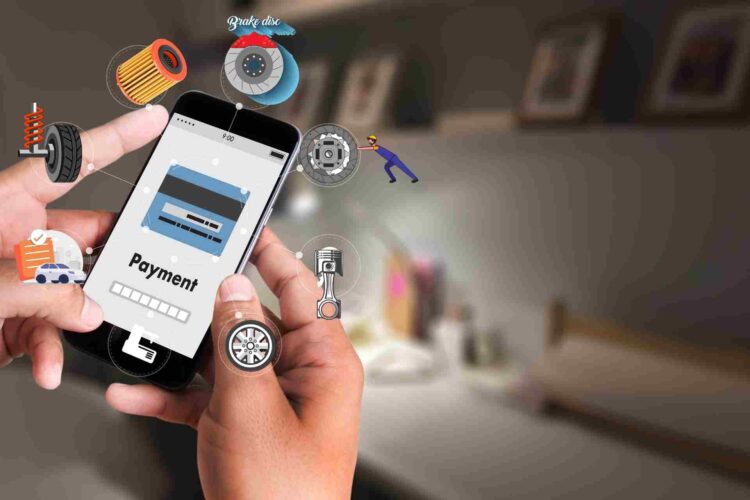
Table of contents:
- Overview of the Auto Parts Industry’s Challenges and Opportunities
- The Importance of CRM in Contemporary Auto Parts Sales
- Comprehending CRM in the Sales of Automotive Components
- The importance of CRM in managing customer data
- Enhancing Sales Processes with CRM
- Improving Customer Service through CRM
- CRM Implementation Challenges and Solutions
- Selecting the appropriate CRM software for your company
- Future Trends in CRM for Auto Parts Sales
- Conclusion
Welcome to the dynamic world of auto parts sales—a sector pulsating with opportunities yet strewn with challenges. Whether you’re a small startup or a major player, the key to unlocking success in this industry lies in mastering the art of customer relationship management (CRM). In this article, we’ll dive deep into how CRM can transform your business, from refining sales processes to enhancing customer service, and why it’s not just helpful but essential.
Overview of the Auto Parts Industry’s Challenges and Opportunities
The auto parts industry is a competitive arena where customer expectations and technological advancements dictate the pace. Businesses face a constant struggle to keep inventory in sync with demand, manage extensive product ranges, and ensure timely delivery. Nevertheless, the digital transformation offers unique chances for expansion. Through utilizing technology, companies can improve efficiency and customer satisfaction, transforming obstacles into opportunities for achievement.
The Importance of CRM in Contemporary Auto Parts Sales
In today’s market, understanding your customer’s needs and preferences is crucial. CRM is more than just software; it is a strategic mindset that encourages lasting connections and commitment. By integrating CRM into your operations, you’re not just selling auto parts; you’re building a community of satisfied, returning customers.
Comprehending CRM in the Sales of Automotive Components
Explanation and Significance of Customer Relationship Management (CRM)
CRM goes beyond being just software; it serves as the foundation for customer engagement initiatives. It aids companies in handling interactions with existing and potential clients, simplifying procedures, and enhancing financial gains. In the auto parts sector, where each customer’s needs are unique, CRM becomes indispensable for delivering personalized service.
Brief Overview of CRM Tools and Technologies
From cloud-based systems to AI-driven analytics, today’s CRM tools are more advanced than ever. They provide comprehensive functionalities such as sales tracking, customer data management, and targeted marketing campaigns, all designed to enhance customer engagement and business performance.
The Evolution of CRM Practices in the Auto Parts Sector
Initially, CRM in the auto parts industry was largely manual, involving cumbersome paper records and spreadsheets. Presently, it has developed into advanced systems that offer instant data and understanding, assisting companies in predicting customer requirements and customizing their products as a result.
The importance of CRM in managing customer data
Tactics for successful collection and analysis of data
Gathering the correct information is only the start. The true power is found in examining this data to discover insights that inform decision-making. Efficient CRM systems assist in identifying trends, monitoring customer actions, and grouping customers by their buying habits.
Best Practices for Maintaining Data Security and Privacy
Data security is paramount. Ensuring that your CRM system complies with global standards like GDPR not only protects your customer data but also builds trust—a crucial element in customer relationships.
Enhancing Sales Processes with CRM
Identifying and Targeting Key Customer Segments
CRM systems facilitate accurate customer grouping, enabling the implementation of more specific and efficient marketing tactics. For example, knowing that a segment of your customers is interested in vintage car parts can help tailor your marketing efforts to this niche.
Streamlining Sales Cycles and Improving Conversion Rates
CRM tools streamline the sales process by automating tasks like order processing and follow-ups, which not only speeds up the cycle but also reduces the chances of errors, enhancing overall efficiency.
Leveraging CRM Analytics for Sales Forecasting and Strategy Planning
CRM analytics play a crucial role in forecasting trends and planning strategies. They provide actionable insights that can help predict future sales trends, aiding in more informed decision-making and refining Automotive Marketing strategies.
Combining CRM with Additional Sales Tools and Platforms
Integration of CRM with other tools, such as ERP systems or e-commerce platforms, ensures a seamless flow of information across all channels, enhancing operational efficiency and customer satisfaction.
Improving Customer Service through CRM
Personalizing Customer Interactions and Communications
CRM systems store detailed customer information, which can be used to personalize communications and offers, making customers feel valued and understood.
Handling and addressing customer feedback and questions
Quick and effective management of customer feedback and inquiries through CRM systems can significantly enhance customer satisfaction and loyalty.
Enhancing Post-sale Support and Loyalty Programs
CRM isn’t just about making a sale. It’s also about nurturing relationships post-sale through effective support and loyalty programs that keep customers coming back.
Utilizing CRM to Resolve Customer Issues Proactively
Sophisticated CRM systems are able to anticipate possible issues in advance, allowing for proactive customer service that impresses and maintains loyalty.
CRM Implementation Challenges and Solutions
Common Hurdles in Adopting CRM Systems in Auto Parts Sales
Resistance to change is a common hurdle. However, with proper training and demonstration of CRM benefits, adoption becomes smoother.
Overcoming Resistance and Managing Change within Organizations
Change management strategies are crucial for successful CRM implementation. Engaging all stakeholders through training sessions and open communication can mitigate resistance significantly.
Customizing CRM solutions to align with specific business requirements
Each company has individual requirements, and CRM solutions must be tailored to address these needs in order to achieve optimal results.
Selecting the appropriate CRM software for your company
Things to think about when choosing a CRM system
When deciding on a CRM, take into account scalability, integration abilities, ease of use, and the provider’s support services.
Comparison of Leading CRM Software for Auto Parts Sales
Comparing different CRM tools based on features, costs, and reviews can help you select the best option for your business.
Tips for Successful CRM Implementation and User Adoption
Effective CRM implementation requires thorough planning, transparent communication, and continuous support to guarantee user acceptance and system efficiency.
Future Trends in CRM for Auto Parts Sales
Emerging Technologies and Their Impact on CRM (AI, Machine Learning, IoT)
AI and IoT advancements are poised to transform CRM by allowing for more personalized, proactive customer support and improved data analysis.
Anticipated Trends in Customer Relationships within the Auto Parts Sector
The future is customer-centric, with CRM at the forefront, helping businesses anticipate customer needs and deliver exceptional service.
Conclusion
Embracing CRM in auto parts sales isn’t just beneficial; it’s essential for staying competitive in this fast-paced industry. By enhancing customer relationships, streamlining sales processes, and leveraging data for better decision-making, CRM systems help businesses thrive.
Have More Questions related to Auto Parts Marketing? Take a look at our blog section for further information. Contact our support team via email at marketing@goautomotivemarketing or call 1 (470) 791-9755 to clarify your doubts. The expert support team of GoAutomotive Marketing is happy to help you.





